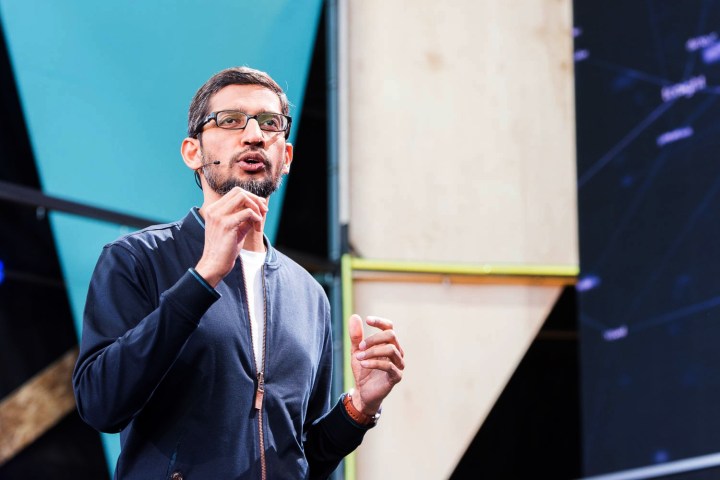
In April, more than 4,000 Google employees signed an open letter to CEO Sundar Pichai wanting out of what they term “the business of war.” Google senior engineers were among thousands of Google staff members who signed the letter, according to The New York Times. The letter requested the immediate cancellation of a specific military project and a more general policy statement about building technology for the military.
One month later, around a dozen Google employees have decided to resign as a form of protest over Google’s continued participation in the military project known as Project Maven. Those who are resigning cited ethical concerns in leveraging A.I. in drone warfare, as well as more general concerns about Google’s decisions in the political arena. Many of the employees who have chosen to end their tenure at Google have shared their rationales in a document that has been circulated internally at Google.
As Gizmodo reported, “The employees who are resigning in protest … say that executives have become less transparent with their workforce about controversial business decisions and seem less interested in listening to workers’ objections than they once did.” And while Google’s culture has often been described as open and honest, that seems to be shifting. As one resigning employee said, “Over the last couple of months, I’ve been less and less impressed with the response and the way people’s concerns are being treated and listened to.”
The open letter, which has apparently gone ignored by management, requested that Google immediately cancel its role in implementing Project Maven. The code name for a Department of Defense (DoD) Algorithmic Warfare Cross-Functional Team (AWCFT), Project Maven is an artificial intelligence (A.I.) program currently under development. Maven’s purpose is to assess drone video footage, Gizmodo reported.
In response to these protests, Google has reportedly decided not to renew Project Maven though it will finish out current contract. Google has not made any formal announcements regarding this, though Reuters cited sources “familiar with the deal.” Previously, Google had defended the contract saying that Project Maven was being used for non-offensive purposes and would save lives.
Project Maven was established by the U.S. Department of Defense (DoD) for the Pentagon in April 2017. A letter under Deputy Secretary of Defense letterhead date stamped April 26, 2017 states the DoD needs to “integrate artificial intelligence and machine learning more effectively across operations to maintain advantages over increasingly capable adversaries and competitors.”
The Defense Deputy Secretary’s announcement says the initial intended use of Maven is to to provide “computer vision algorithms for object detection, classification, and alerts” for tactical Unmanned Aerial System (UAS), or drones.

The second, more general request in the Google letter, was that Pichai “draft, publicize, and enforce a clear policy stating that neither Google nor its contractors will ever build warfare technology.”
Participating in Project Maven will “irreparably damage Google’s brand and its ability to compete for talent,” the letter stated. Google is “struggling to keep the public’s trust,” the letter continued, while many fear “biased and weaponized A.I.”
The letter refers to a Google core value statement: “Every one of our users is trusting us. Never jeopardize that. Ever.” The letter’s signatories assert that the contract with the DoD directly opposes this core value and places the company’s reputation at risk.
Former Google CEO and Executive Chairman Eric Schmidt was the keynote speaker at the November 2017 Center for a New American Security Artificial Intelligence and Global Security Summit. Schmidt was asked about the relationship between tech companies, A.I. research, and national security.
“There’s a general concern in the tech community of somehow the military-industrial complex using their stuff to kill people incorrectly,” Schmidt said.
The letter to current CEO Pichai is evidence that at least for those who signed it, the general concern Schmidt mentioned is real and specific. Another letter has since been circulated, authored by over 90 academics in artificial intelligence, ethics, and computer science, who similarly asked Google to cease its work on Project Maven.
Updated on June 2: Google has reportedly decided it will not renew Project Maven.


